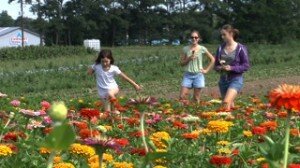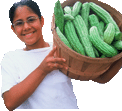The University of Vermont (UVM) Extension’s New Farmer Project recently launched the Vermont Agriculture Land Access Database to help connect farmers seeking land and business opportunities with land and farm owners with available resources. The database was created to provide a means for new, expanding or relocating farmers to search for land or farms for lease or sale at agricultural or fair market value, partnerships, farm transition arrangements, work exchanges and farm employment opportunities throughout and within 50 miles of Vermont.
Established farmers interested in providing access to land or transitioning their operations can list their information in the database. So can landowners not currently farming who wish to develop tenure arrangements such as lease-to-own, farm management or owner-financed farm sales.
The database may be accessed at www.uvm.edu/newfarmer. Click on “Land Access Database” under “Quick Links.” Farm seekers may search the database or submit information about their specific requirements for land, jobs or business arrangements. Farm and landowners are encouraged to publicize available land and other resources and opportunities.
Depending on how the landowner chooses to list the information, individuals may contact the owner directly or work with UVM Extension land access specialists to learn more. In addition, these Extension consultants are available to help farmers assess their needs and explore various types of farm tenure arrangements. They also serve as a third-party facilitator for negotiations between incoming farmers and landowners. For more information, contact Ben Waterman at or .

 Information for beginning farmers.
Information for beginning farmers.
